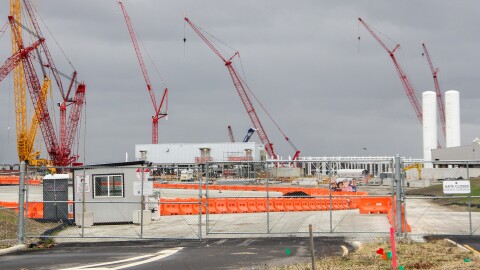Intel CEO Lip-Bu Tan said he’s “always operated within the highest legal and ethical standards” after President Donald Trump and Ohio U.S. Senator Bernie Moreno said he should resign.
Tan also addressed the situation, saying in a message to employees that there was misinformation circulating about his past roles at Walden International and Cadence Design Systems and that he’s always followed proper standards.
Tan also said Intel was in contact with the Trump administration.
“We are engaging with the Administration to address the matters that have been raised and ensure they have the facts,” Tan said. “I fully share the President’s commitment to advancing U.S. national and economic security, I appreciate his leadership to advance these priorities, and I’m proud to lead a company that is so central to these goals.”.
On Thursday Trump said on platform that, “The CEO of Intel is highly CONFLICTED and must resign, immediately. There is no other solution to this problem. Thank you for your attention to this problem!”
It’s the latest quarrel between the party in power and Intel, which has gotten federal and state grants for its under-construction Ohio project, among others across the country. Earlier this year, Trump suggested Congress roll back the CHIPS and Science Act, of which Intel is one of the biggest benefactors.
On , Moreno wrote "It's pretty obvious that Intel has failed to meet the commitments it made to the people of Ohio. Now we find out its new CEO is deeply conflicted with ties to the CCP (Chinese Communist Party). The CEO must immediately resign, the project completed, and a fraud investigation should be initiated by Ohio."
Trump’s post landed after Sen. Tom Cotton sent a letter to Intel Chairman Frank Yeary expressing concern over Tan’s investments and ties to semiconductor firms that are reportedly linked to the Chinese Communist Party and the People’s Liberation Army, and asked the board whether Tan had divested his interests in these companies to eliminate any conflicts of interest.
It was not immediately clear on Thursday if Tan, who had divested his interests in the companies.
The economic and political rivalry between the U.S. and China are increasingly focused on computer chips, AI and other digital technologies that are expected to shape future economies and military conflicts.
Intel said in a statement that it’s “deeply committed to advancing U.S. national and economic security interests and are making significant investments aligned with the President’s America First agenda.”
When Intel broke ground in Licking County less than three years ago, the semiconductor manufacturer said it could be online by 2025, but that aggressive plan for its eventual central Ohio plants has pushed later and later since. Intel announced the newest timeline adjustment in February, punting the date to finish one fabrication plant to 2030 and the second “fab” to 2031. Neither will come online until at least 2031.



